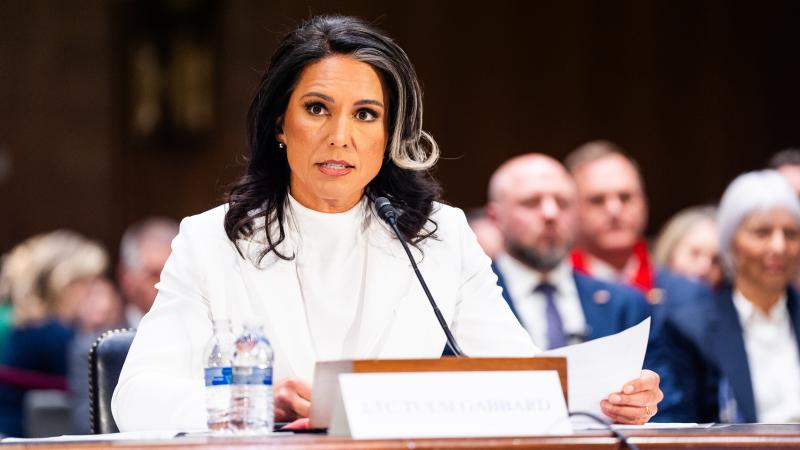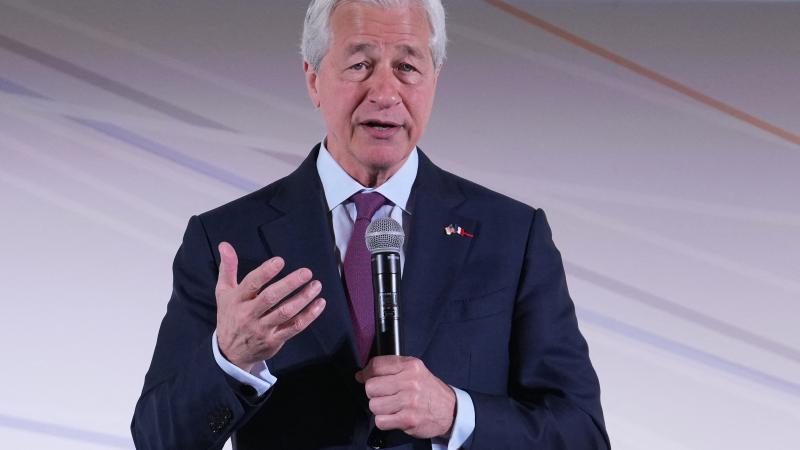Marriage, monogamy, middle age: Future K-12 teachers drilled in 'agents' of oppression, Marxism
Taxpayer-funded colleges of education inculcate future teachers in critical race theory, intersectionality and highly granular categories of power and oppression, including in red states, report finds. Portland State says pansexuals have partial privilege.
Marriage. Monogamy. Middle-aged people.
These are just a few "agents" of oppression, according to Portland State University's Elementary Education program, which trains teachers for K-12 schools.
Advocacy group Parents Defending Education analyzed K-12 programs in nearly 70 colleges of education in 34 states for a report, "Colleges of Education and the Teacher as Activist Pipeline." PSU got the biggest section, for its sheer number of activist elements.
Across more than 100 syllabi and course descriptions in undergraduate and graduate education, the group found over 300 references to common concepts in critical theory and its popularizers, including critical race theory, queer theory, the "Pedagogy of the Oppressed," white privilege and Robin DiAngelo, whose "white fragility" concept is even in medical schools.
The findings are important because "a vast majority of K-12 teachers and administrators take college courses beyond undergraduate to either move up the district pay scale, meet state certification requirements, or transition into administration," PDE said.
The courses, mostly found in syllabi from the past six years, play an outsized role in school districts implementing "radical ideologies" including "decolonization, whiteness, and anti-meritocracy" over the objections of parents, it said.
The report elaborates on PSU, Colorado State, University of Florida, University of Michigan, University of Texas El Paso, University of Utah, Virginia's George Mason, University of Wisconsin Stevens Point, Trinity College and University of Pennsylvania, the last two private.
Program elements include "Trump and the politics of hate and White radicalism" for a teacher certification track, "Activism Beyond the Classroom" with readings from Black Lives Matter founders, Marxist readings and student-created "intersectionality wheel[s]” to make them "antiracist English Language Arts educators."
The University of Utah's Department of Education, Culture, and Society was created specifically for the “study and pursuit of social justice in education."
An El Paso course says it will help students “deconstruct 'social amnesia' of individualism and its effects on collective’s ‘social agency and sociological imaginary’ within contexts of postcoloniality in contemporary society," with readings by former Communist Party USA vice presidential candidate Angela Davis, whose weapons were used to kidnap a judge in 1970.
Deep-red states aren't exempt from highly ideological programs funded by taxpayers.
The report studies the University of Alabama, University of Central Arkansas, Idaho State, Missouri State, Montana State, and Texas A&M campuses in Commerce and Texarkana in the state's northeast corner, while Nebraska's private Concordia University also makes an appearance.
Concerns about ed schools as training grounds for progressive activism and factories of ideological conformity go back at least to 2006.
That year the National Association of Scholars, American Council of Trustees and Alumni and Foundation for Individual Rights in Education convinced the National Council for Accreditation of Teacher Education to ditch standards that required ed schools to ensure that students demonstrate "dispositions" including a commitment to "social justice" and "diversity."
FIRE launched campaigns against individual ed schools with "ideological litmus tests," starting with Columbia's Teachers College, the same year. It rebranded with a broader mission in 2022.
PSU's program graduated 45 students in elementary education and nearly twice as many in secondary education this spring. PDE said its "corrupted philosophy" reached more than 120,000 students in the seven adjoining school districts.
Even among campuses in blue cities, PSU has long been a magnet for disruptive protests and nearby violence in a city known for 100 days of violence following George Floyd's killing in Minneapolis. One of PSU's few rebukes to campus activists was rearming its police force in spring 2023 after a year and a half of unarmed patrols.
It's known for academic freedom battles with former philosophy professor Peter Boghossian, stemming from his "Grievance Studies" publishing hoax, and political scientist Bruce Gilley, for finding benefits from colonialism and exposing a "gag order" on faculty dissidents.
PSU's College of Education made national news two years ago by hiring an elementary school principal who had resigned following unwanted attention for her three-week “anti-racism bootcamp," which reportedly "instructed elementary children to describe their race and informed them about microaggressions and systemic racism."
Its "Identity and Social-Emotional Learning" course says teacher candidates will "take a deep dive into their own identity, vulnerability, and social emotional experiences" to prepare for the classroom and use "transformative" SEL as a lens, centering "anti-racist and restorative justice practices that correspond with elementary students’ lived experiences."
The first week includes "Social Identity Mapping," in which they identify the "agent," "border group" and form of "oppression" on the "target." Typical of intersectionality, agents of oppression in one context can be targets in another, such as women who identify with their sex.
Beyond the trifecta of middle-aged monogamous married couples, other agents of oppression include people "of appropriate age" – who target those who are "too old" or "too young" – and "appropriate size," whose targets can be too tall, short, fat, "flat chested, childlike" and more.
"Border groups" include multiracial and middle-class people, Roman Catholics, bisexuals and "people with temporary disabilities" depending on context, suggesting they are at least complicit in oppression by benefiting from their gray-area status.
An "intersectionality wheel of power and privilege" attempts to categorize many more forms of social benefit, including political party membership, ability to drive, mental stability and monogamous heterosexuality, and their opposites as marginalized.
The intermediate circle is for "erased" groups, such as mentally "resilient" people, manual laborers, pansexuals and green-card holders.
The week-five curriculum rebrands racial segregation as "caucuses," also known as affinity groups. These are "times when people of color and white people within an organization meet separately" to each do work suited to their race, as when whites "work through guilt … hold each other accountable" and remind each other "work needs to be done to address racism."
The caucus document emphasizes the white and nonwhite groups "do not necessarily have to come together" to report what they discussed and accomplished, but says they should have "a conduit through which appropriate information is shared."
The Facts Inside Our Reporter's Notebook
Videos
Links
- Portland State University's Elementary Education program
- "Colleges of Education and the Teacher as Activist Pipeline
- "white fragility" concept is even in medical schools
- Colorado State
- University of Florida
- University of Michigan
- University of Texas El Paso
- University of Utah
- Virginia's George Mason
- University of Wisconsin Stevens Point
- Trinity College
- University of Pennsylvania
- Angela Davis, whose weapons were used to kidnap a judge
- University of Alabama
- University of Central Arkansas
- Idaho State
- Missouri State
- Montana State
- Commerce
- Texarkana
- Concordia University
- National Council for Accreditation of Teacher Education to ditch standards
- FIRE launched campaigns against individual ed schools
- PSU's program, which graduated
- magnet for disruptive protests
- nearby violence
- 100 days of violence following George Floyd's killing
- rearming its police force in spring 2023
- Peter Boghossian, stemming from his "Grievance Studies"
- Bruce Gilley, for finding benefits from colonialism
- exposing a "gag order" on faculty dissidents
- hiring an elementary school principal who had resigned
- "Social Identity Mapping,















